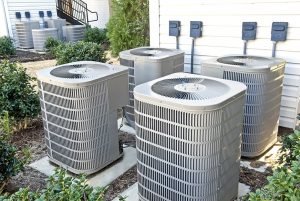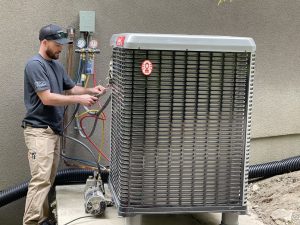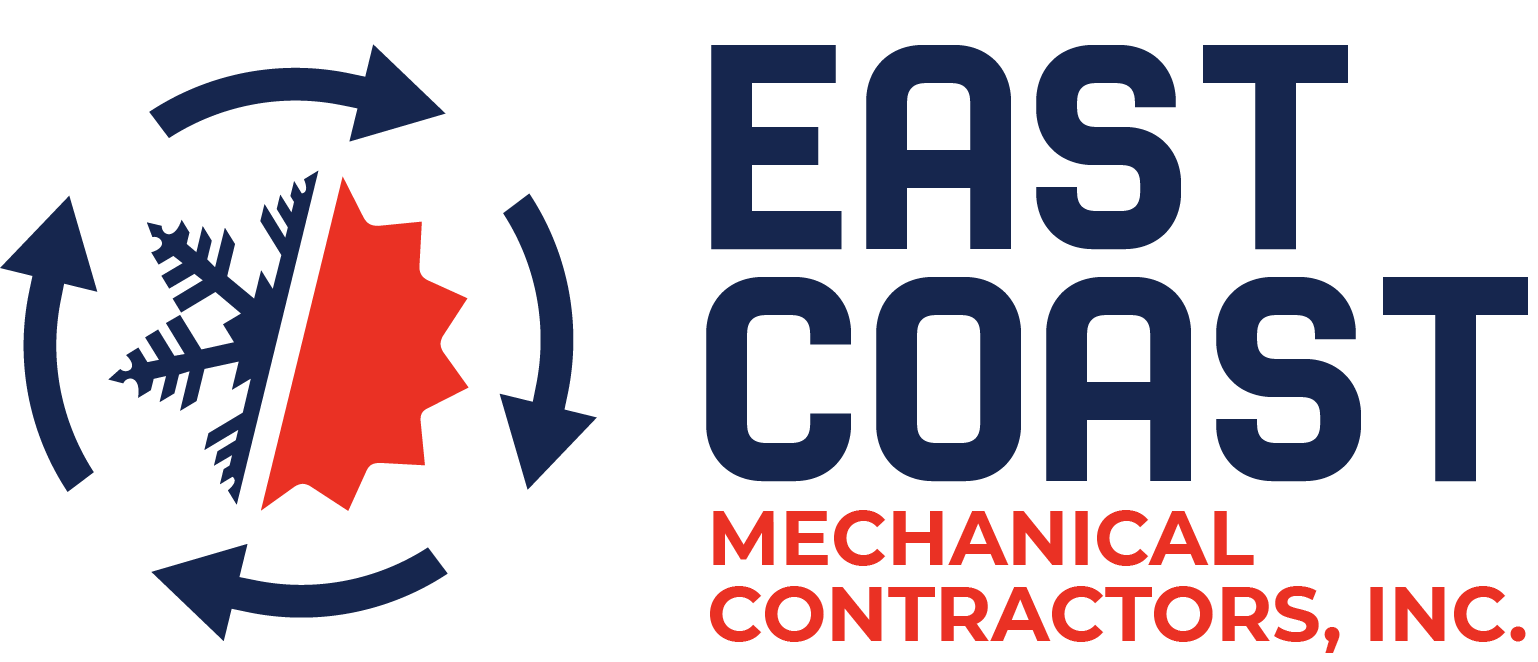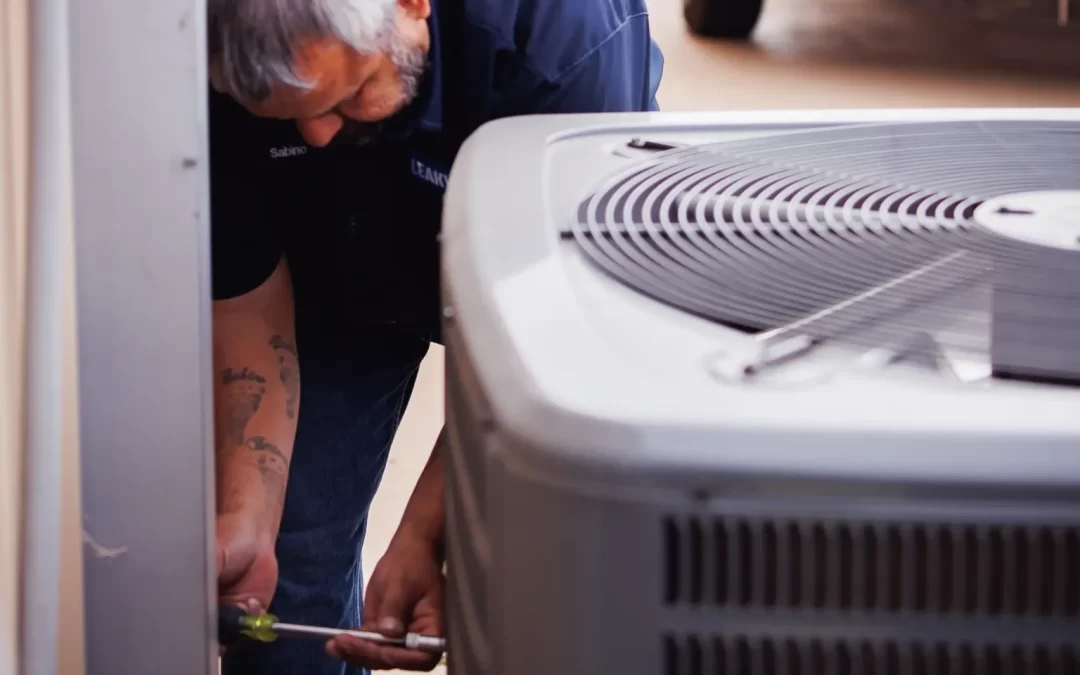When it comes to choosing a heating and cooling system for your home or business, the decision often comes down to heat pumps vs. traditional HVAC systems. Both options provide climate control, but they operate differently and come with distinct advantages and disadvantages. Understanding the key differences will help you make an informed decision that best suits your comfort needs, budget, and efficiency goals.
Understanding Heat Pumps and Traditional HVAC Systems
What is a Heat Pump?
A heat pump is an energy-efficient system that provides both heating and cooling by transferring heat instead of generating it. In the winter, it extracts heat from the outdoor air (even in cold temperatures) and moves it indoors. In the summer, it reverses the process, acting like an air conditioner to remove heat from inside and release it outdoors.
Heat pumps come in different types, including air-source heat pumps, ground-source (geothermal) heat pumps, and water-source heat pumps. Each type has its own benefits depending on climate and installation needs.
What is a Traditional HVAC System? 
A traditional HVAC system typically consists of separate heating and cooling units. The heating component is often a furnace that burns gas, oil, or uses electric resistance to generate heat, while the cooling component is a conventional air conditioner that removes heat from the air inside your home.
Furnaces can be powered by natural gas, propane, oil, or electricity, and their efficiency is measured by the Annual Fuel Utilization Efficiency (AFUE) rating. Air conditioners, on the other hand, have their efficiency rated by the Seasonal Energy Efficiency Ratio (SEER).
Comparing Heat Pumps and Traditional HVAC Systems
1. Energy Efficiency
Heat Pumps: Heat pumps are highly energy-efficient, as they transfer heat rather than generate it. They can reduce energy consumption by up to 50% compared to electric resistance heating systems. Additionally, heat pumps with variable-speed compressors and smart thermostats provide enhanced efficiency and better comfort control.
Traditional HVAC Systems: While modern furnaces and air conditioners have high-efficiency models, they generally consume more energy, especially if you rely on a gas furnace for heating. High-efficiency furnaces with AFUE ratings of 90% or more can significantly reduce fuel consumption.
2. Cost Considerations
Upfront Cost: Heat pumps usually have a higher initial cost than a standard furnace or air conditioning unit. However, they replace both heating and cooling systems, potentially saving money in the long run.
Operating Cost: Because they use less energy, heat pumps can lead to lower utility bills. Traditional HVAC systems may be costlier to run, particularly if you use oil or electric resistance heating. Homeowners using solar panels may benefit more from heat pumps due to their ability to run on renewable energy.
3. Climate Suitability
Heat Pumps: Heat pumps work best in moderate climates but are improving in performance for colder regions with advancements like cold-climate heat pumps. These models use enhanced vapor-injection compressors to maintain efficiency even in temperatures below freezing.
Traditional HVAC Systems: If you live in an area with extremely cold winters, a gas or oil furnace may be more reliable and efficient at maintaining comfortable indoor temperatures. Some homeowners opt for dual-fuel systems, which combine a heat pump with a gas furnace for maximum efficiency.
4. Installation and Maintenance 
Heat Pumps: Since a heat pump serves as both a heater and an air conditioner, installation can be streamlined. However, they require maintenance at least once a year to ensure efficiency. Common maintenance tasks include cleaning filters, checking refrigerant levels, and inspecting the outdoor unit.
Traditional HVAC Systems: Installing a separate furnace and air conditioner can be more complex. Maintenance requirements vary, but furnaces may need periodic checks to ensure safe combustion. Duct cleaning and regular servicing are necessary for maintaining efficiency.
5. Lifespan and Durability
Heat Pumps: Typically last 10-15 years, depending on usage and maintenance. Because they run year-round for both heating and cooling, they may wear out faster than a furnace.
Traditional HVAC Systems: Furnaces can last 15-20 years, while air conditioners generally last 10-15 years. Proper maintenance, such as changing filters and scheduling regular inspections, can extend lifespan.
6. Environmental Impact
Heat Pumps: Since they don’t rely on combustion, heat pumps produce fewer carbon emissions, making them a greener choice. Heat pumps using R-410A refrigerant have a lower environmental impact compared to older models using ozone-depleting substances.
Traditional HVAC Systems: Gas and oil furnaces release carbon dioxide, contributing to environmental concerns. However, high-efficiency models help minimize emissions. Additionally, upgrading to an Energy Star-certified HVAC system can reduce environmental impact.
Pros and Cons Summary
Heat Pumps
✅ Energy-efficient and environmentally friendly
✅ Provides both heating and cooling
✅ Lower long-term operating costs
❌ Higher upfront cost
❌ Less effective in extreme cold unless upgraded models are used
❌ Requires annual maintenance to sustain efficiency
Traditional HVAC Systems
✅ Reliable heating in extreme cold
✅ Lower initial installation cost
✅ Longer lifespan for furnaces
❌ Higher energy consumption
❌ Requires separate heating and cooling systems
❌ Greater environmental impact due to carbon emissions
Which One is Right for You?
- If you live in a mild to moderate climate and want energy efficiency, a heat pump is an excellent choice.
- If you reside in an area with harsh winters and require strong heating performance, a traditional HVAC system with a furnace might be a better option.
- If you’re concerned about long-term savings and eco-friendliness, a heat pump is the way to go.
- If you want lower initial costs and have access to affordable natural gas, a traditional HVAC system might be more practical.
Need Help Choosing the Right System?
At East Coast Mechanical Contractors, we specialize in residential and commercial HVAC services in Monmouth County and Central New Jersey. Whether you’re considering a heat pump or a traditional HVAC system, our expert technicians can guide you toward the best solution for your home or business.
Get a Free Quote Today!
📞 Call us at 732-751-8877
📍 Visit us at 5133 W Hurley Pond Rd #A, Wall Township, NJ 07727\
📧 Email us at ecmcecmc@aol.com
Let us help you stay comfortable year-round with the best HVAC solution for your needs!

